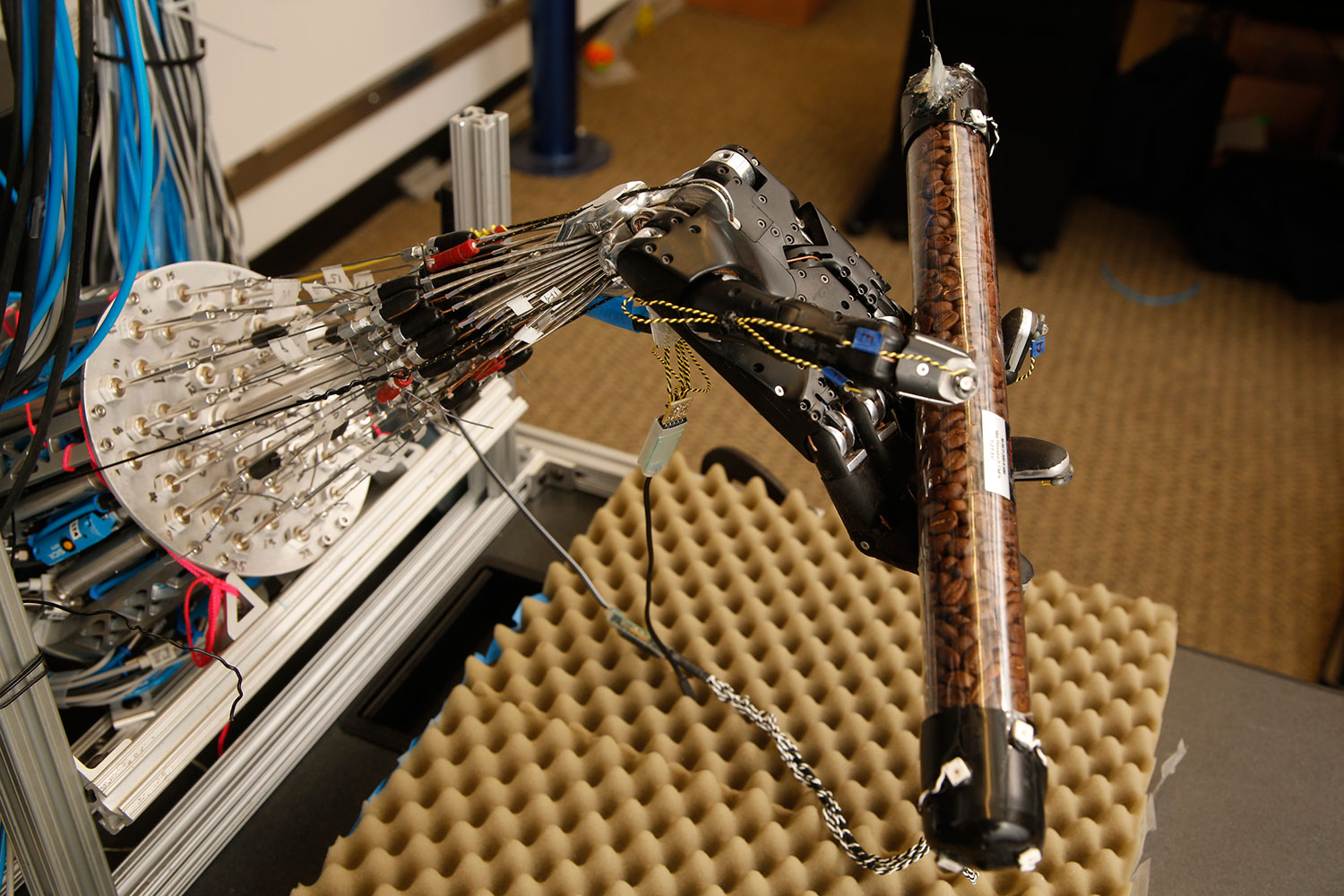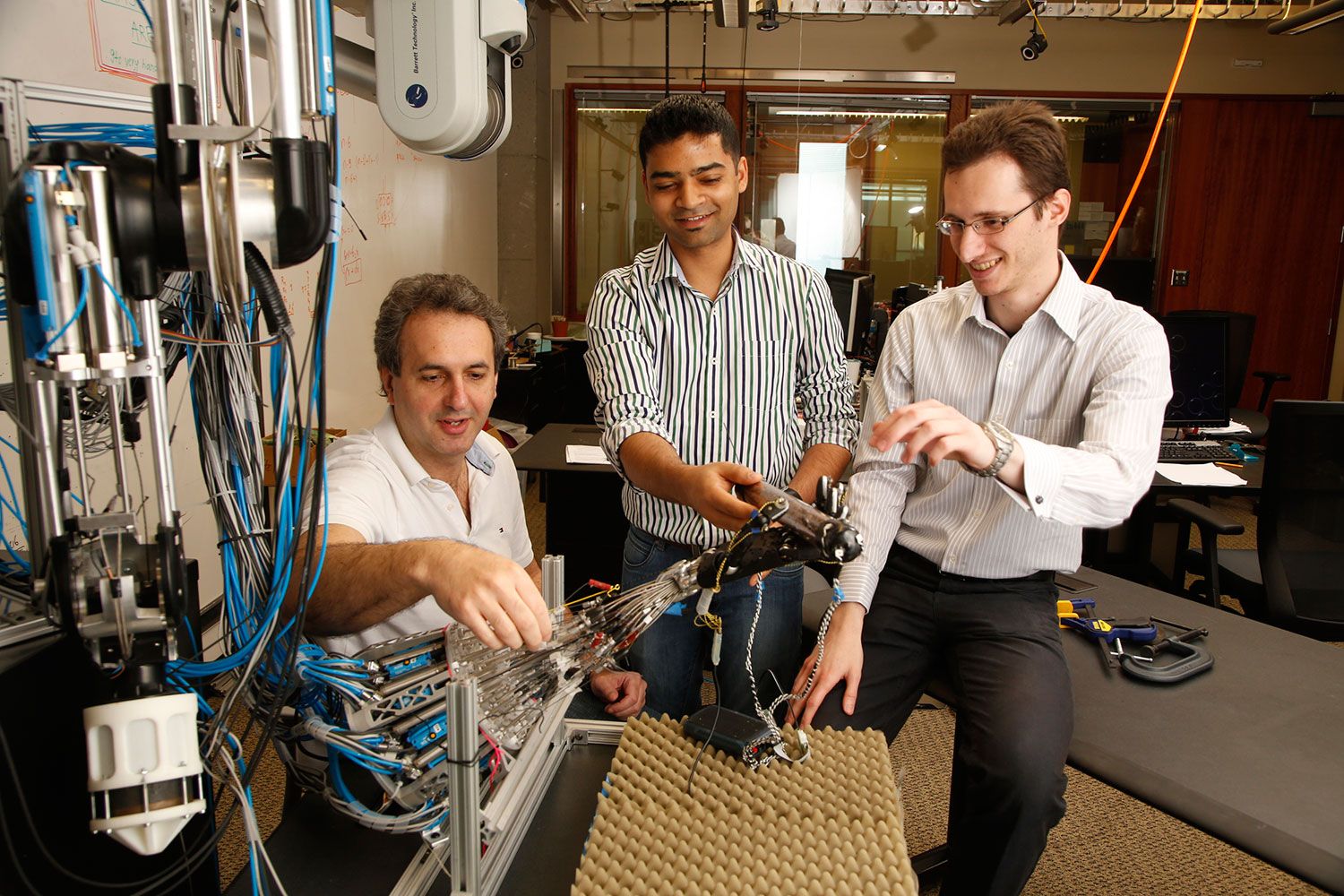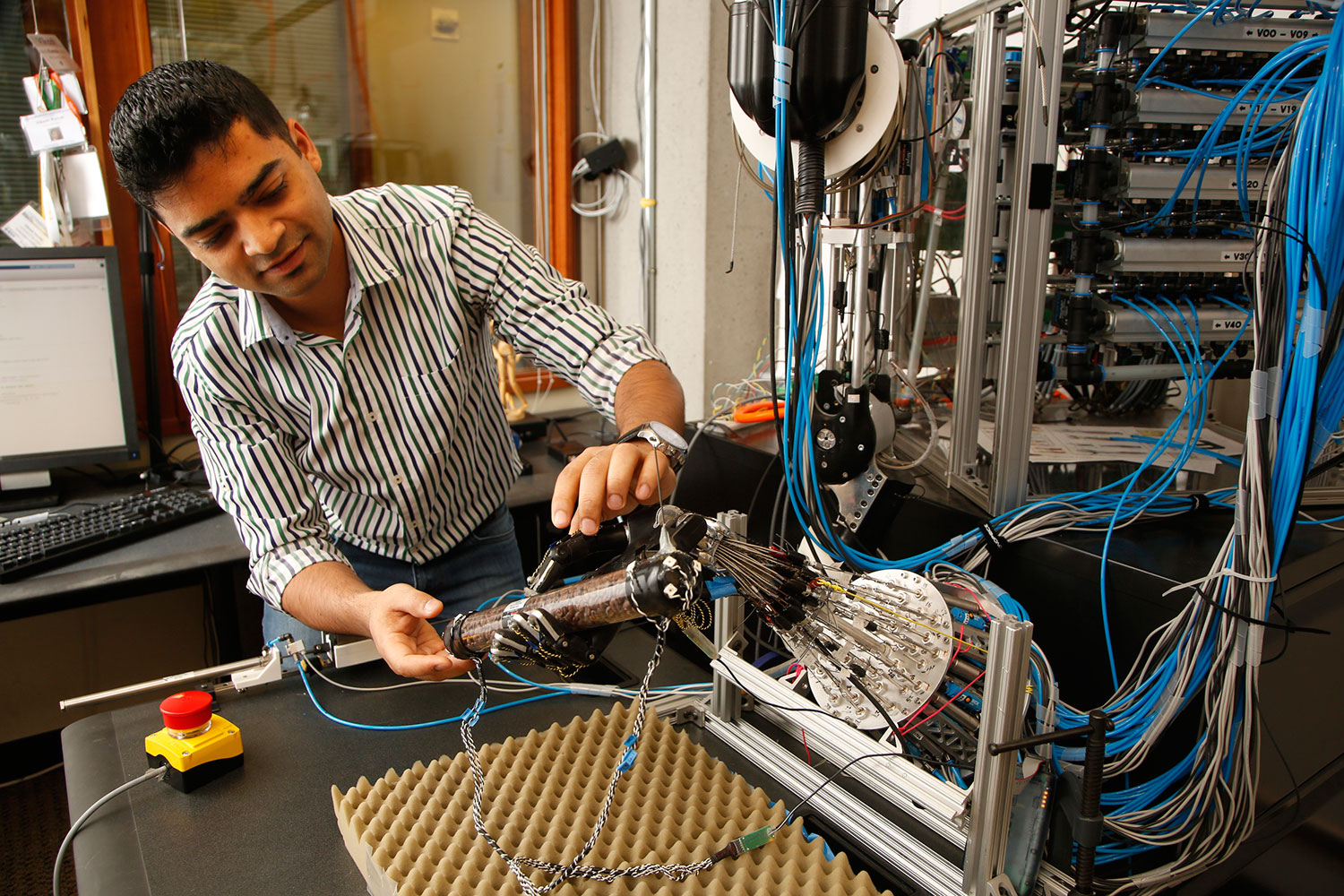But a team of researchers at the University of Washington have developed an artificial hand that’s built by robotics and trained by artificial intelligence. It may be the most sophisticated artificial hand ever created. In a video released by the UW Movement Control Laboratory, the hardware hand shows off its impressive dexterity by counting its fingers with inhuman speed. An animated segment also depicts a simulated hand — powered by machine learning algorithms — that’s taught itself to twirl and flip an object to get a better grip.
“Hand manipulation is one of the hardest problems that roboticists have to solve,” UW doctoral student and lead author Vikash Kumar said in a statement. “A lot of robots today have pretty capable arms, but the hand is as simple as a suction cup or maybe a claw or a gripper.”
UW’s robotic and simulated hands aren’t simple – and they aren’t exactly practical, either. The system cost about $300,000 and a few years to develop. And when the team connected the hardware hand with the machine learning models, the robot failed to twirl objects as gracefully as the simulation depicted.
There’s hope, though. With each of the hardware hand’s attempts, the machine learning algorithms analyze and refine the simulated models. In this process, the hardware learns how to better manipulate familiar, individual objects. Soon, UW researchers hope to expand this learning to enable the hand to manipulate new objects on its own.





